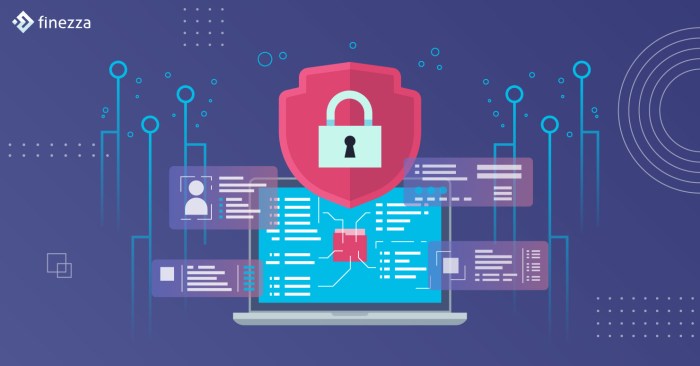Cybersecurity in fintech, a crucial aspect of the financial technology industry, is the shield that safeguards sensitive data and transactions from malicious threats. As fintech continues to revolutionize the way we handle money, ensuring robust cybersecurity measures is paramount to maintaining trust and security in this digital age.
In this article, we will explore the significance of cybersecurity in fintech, the various measures taken to protect against cyber threats, the role of compliance in upholding security standards, and the impact of emerging technologies on the future of cybersecurity within the fintech sector.
Importance of Cybersecurity in Fintech
In the fast-paced world of financial technology, commonly known as fintech, cybersecurity plays a critical role in safeguarding sensitive data and ensuring the smooth operation of digital financial services.
Cybersecurity Threats in Fintech
- Phishing Attacks: Cybercriminals send fraudulent emails or messages to trick individuals into revealing personal information, such as login credentials or financial details.
- Ransomware: Malicious software that encrypts data on a victim’s device until a ransom is paid, causing significant disruptions to fintech services.
- Data Breaches: Unauthorized access to customer data can lead to identity theft, financial fraud, and reputational damage for fintech companies.
Consequences of a Cybersecurity Breach in Fintech
-
Financial Losses: Data breaches can result in financial losses due to stolen funds, regulatory fines, and legal fees associated with resolving cyber incidents.
-
Reputational Damage: Fintech companies may suffer a loss of customer trust and loyalty following a cybersecurity breach, impacting their brand reputation in the market.
-
Legal Ramifications: Violations of data protection laws can lead to legal actions, penalties, and lawsuits against fintech firms, further exacerbating the consequences of a cybersecurity incident.
Cybersecurity Measures in Fintech
In the fast-paced world of fintech, cybersecurity measures are crucial to protect sensitive financial data and prevent cyber attacks. Fintech companies implement various cybersecurity measures to ensure the security and integrity of their systems and customer information.
Common Cybersecurity Measures, Cybersecurity in fintech
- Encryption: Fintech companies use encryption techniques to secure data transmission and storage, ensuring that sensitive information is protected from unauthorized access.
- Multi-factor Authentication: Implementing multi-factor authentication adds an extra layer of security by requiring users to provide multiple forms of verification before accessing accounts or making transactions.
- Firewalls: Firewalls are used to monitor and control incoming and outgoing network traffic, preventing unauthorized access and protecting against cyber threats.
- Regular Security Audits: Fintech companies conduct regular security audits to identify vulnerabilities, assess risks, and implement necessary security updates and patches.
Cybersecurity Frameworks for Fintech
One common cybersecurity framework used by fintech companies is the NIST Cybersecurity Framework, which provides a set of guidelines and best practices for managing cybersecurity risks.
- ISO/IEC 27001: This framework focuses on information security management systems and helps fintech companies establish and maintain effective security controls.
- PCI DSS: The Payment Card Industry Data Security Standard is specifically designed for companies that process credit card payments, ensuring the secure handling of cardholder data.
Successful Cybersecurity Strategies in Fintech
- Real-time Monitoring: Fintech companies employ real-time monitoring tools to detect and respond to security incidents promptly, minimizing the impact of potential threats.
- Employee Training: Investing in cybersecurity awareness training for employees helps in building a security-conscious culture within the organization and reduces the risk of human error leading to security breaches.
- Collaboration with Security Experts: Partnering with cybersecurity experts and threat intelligence providers enables fintech companies to stay ahead of emerging threats and implement proactive security measures.
Role of Compliance in Cybersecurity for Fintech: Cybersecurity In Fintech
Compliance regulations play a crucial role in ensuring cybersecurity for fintech companies. These regulations set the guidelines and standards that companies must follow to protect sensitive financial data and prevent cyber threats.
Key Compliance Standards for Fintech Companies
- PCI DSS (Payment Card Industry Data Security Standard): Ensures secure handling of credit card information.
- GDPR (General Data Protection Regulation): Protects the personal data of individuals within the European Union.
- CCPA (California Consumer Privacy Act): Safeguards the privacy rights of California residents.
Challenges of Maintaining Compliance and Cybersecurity
- Complexity: Compliance requirements are often intricate and changing, making it challenging for fintech companies to keep up.
- Cost: Implementing and maintaining compliance measures can be costly for companies, especially startups with limited resources.
- Resource Constraints: Fintech companies may struggle to allocate the necessary resources and expertise to effectively manage both compliance and cybersecurity.
Emerging Technologies in Cybersecurity for Fintech

Cybersecurity in fintech is constantly evolving, and emerging technologies like AI and blockchain are playing a crucial role in enhancing security measures for financial transactions. These technologies are reshaping the landscape of cybersecurity in the fintech industry, providing innovative solutions to combat cyber threats.
Artificial Intelligence (AI) in Cybersecurity
AI is revolutionizing cybersecurity in fintech by enabling real-time threat detection and response. Machine learning algorithms can analyze vast amounts of data to identify patterns and anomalies, helping fintech companies proactively defend against cyber attacks.
Blockchain Technology in Cybersecurity
Blockchain technology offers decentralized and tamper-proof storage of financial data, making it highly secure for transactions. Its distributed ledger system ensures transparency and integrity, reducing the risk of fraud and unauthorized access in fintech operations.
Innovative Cybersecurity Solutions in Fintech
Fintech companies are adopting advanced cybersecurity solutions such as biometric authentication, behavioral analytics, and encryption techniques to safeguard sensitive information. These cutting-edge tools enhance the overall security posture of fintech platforms, ensuring secure and seamless user experiences.
Future Trends of Cybersecurity Technologies in Fintech
The future of cybersecurity in fintech will likely see the integration of quantum computing, zero-trust security models, and advanced threat intelligence systems. As cyber threats continue to evolve, fintech companies must stay ahead of the curve by embracing these emerging technologies to protect customer data and maintain trust in the digital financial ecosystem.